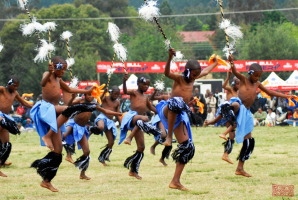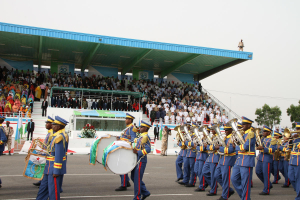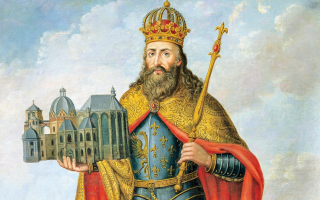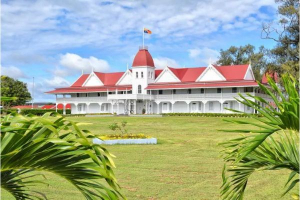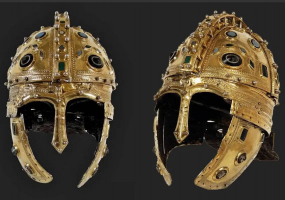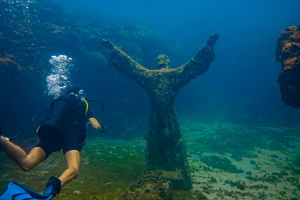Top 6 Most Famous Chess Players
Have you ever wondered about the most famous chess players in history? Here, Toplist will give you the six names that any devoted fan of chess will recognize ... read more...instantly.
-
1985 marked the beginning of Garry Kasparov's reign as the youngest uncontested World Chess Champion at the age of 22. He was ranked number one for a very long time, refusing to give the title to any of his other components. His domination only ended when he decided to leave the scene in 2005.
However, as the adage goes, "every Chess grandmaster was once a novice," and that applies even to a champion! Garry began his path to becoming one of the greatest chess players of his generation in the chess academy of Mikhail Botvinnik at the age of 10. In 1978, he won a pro chess tournament - a competition that he joined by mistake. He was rated second in the world in 1983. In 1984, Garry Kasparov confronted Anatoly Karpov for the World Championship but lost to him in a 48-game tournament. The next year, he won the championship and successfully defended it three times.
Following his departure from FIDE in 1995, the crown remained divided for thirteen years until 2000, when Kasparov ultimately lost his championship to Kramnik. And finally, in 2005, after winning the renowned Linares event for the tenth time, he declared his retirement, as we previously mentioned. Despite the fact that he's no longer in the game, Garry Kasparov will be forever remembered as the unique champion in chess history and one of the most famous chess players.
Born: 1963
Nationality: Russian
World Champion: 1985-1993; 1993-2000
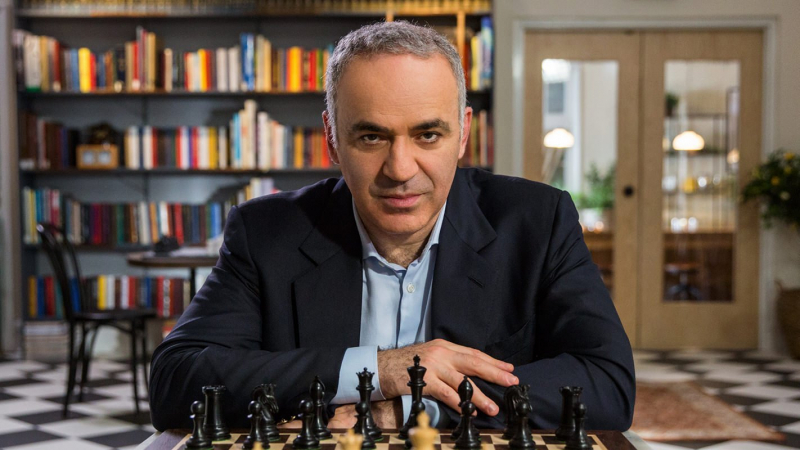
Source: Business of Esports 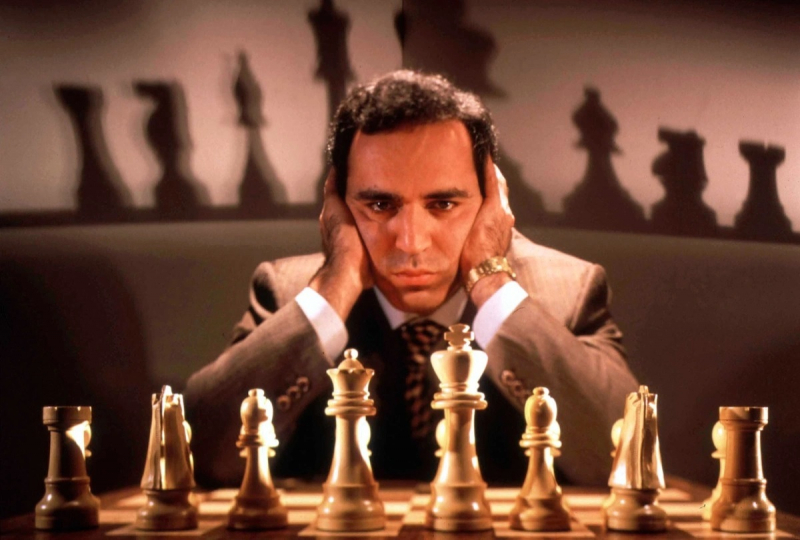
Source: TIME -
Of course, in our list of the most famous chess players in history, Anatoly Karpov will definitely be among the top. Karpov was the youngest Soviet National Master (15 years old), World Junior Chess Grandmaster in 1969. He easily beat Spassky and Korchnoi in 1974, and faced Bobby Fisher for the World Championship. Fisher resigned from the title match, resulting in Karpov's automatic victory.
His reign from 1975 to 1985 and from 1993 to 1999 was contested, and he won 160 first-place events. Still, unfortunately, he lost his championship to Garry Kasparov around 1985, a year after successfully defending it against Kasparov himself.
The tournament he won in 1995, Linares, is regarded as the strongest in history. After defending his championship against Gata Kamsky in 1997, Karpov surrendered it in 1998 in protest of FIDE rule revisions - which altered the measurements and criteria based on which the title was determined. This record firmly establishes him as being one of the greatest chess players ever.
Among thousands of impressive games he played, Anatoly Karpov left the strongest impression in a Linares tournament in 1994. In this competition, Karpov won with an astounding score of 11/13. Garry Kasparov, Vishy Anand, Veselin Topalov, Boris Gelfand, and Evgeny Bareev, to mention a few, were among the many opponents he left behind in the final rankings back then.
Born: 1951
Nationality: Russian
World Champion: 1975 - 1985; 1993 - 1999
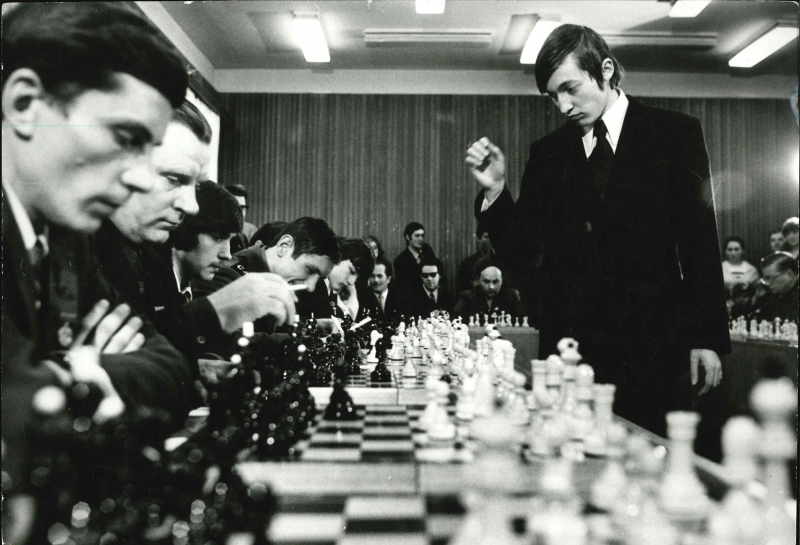
Source: World Chess Hall of Fame 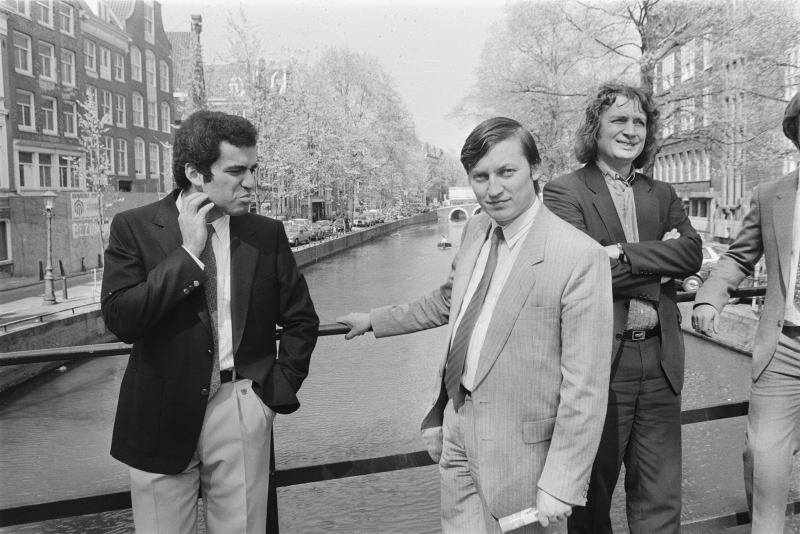
Source: Chess.com -
Magnus Carlsen's chess career is filled with notable accomplishments. In 2004, he was just 12 when he obtained the rank of grandmaster. And then, in 2008, Magnus Carlsen achieved an astounding Elo score of over 2700. Even better, only 1 year later, he was ranked first in the world by FIDE!
And that's not even the end of his career peak. In a twelve-game encounter four years later, Magnus Carlsen beat the incumbent World Chess Grandmaster Vishy Anan. Carlsen won the competition in only 9 games and was crowned the new world champion!
The following year, in a rematch versus Vishy Anand, he successfully defended his title and claimed the 2014 World Speed Championship and International Blitz Championship. Then, in May of the same year, Carlsen earned a top rating of 2882, the best grade in chess history. A few years later, around 2016, he managed to defend his championship against the Russian Mega Sergey Karjakin for the second time.
Magnus Carlsen is among the greatest chess masters of all time due to the fact that he appears to possess no flaws. Despite the fact that Carlsen plays theoretical and strategic chess, he seldom wastes tactical possibilities, and he truly understands how to turn a seemingly modest advantage into the ultimate victory.
Born: 1990
Nationality: Norwegian
World Champion: 2013-2023
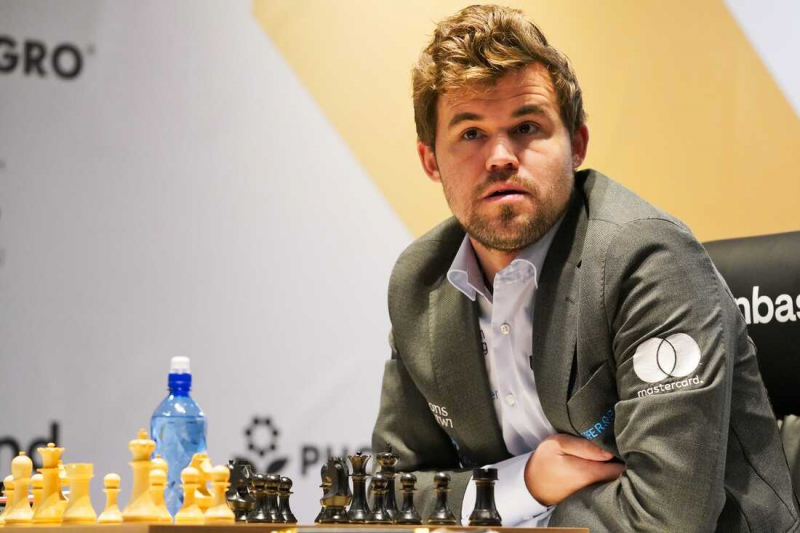
Source: NPR 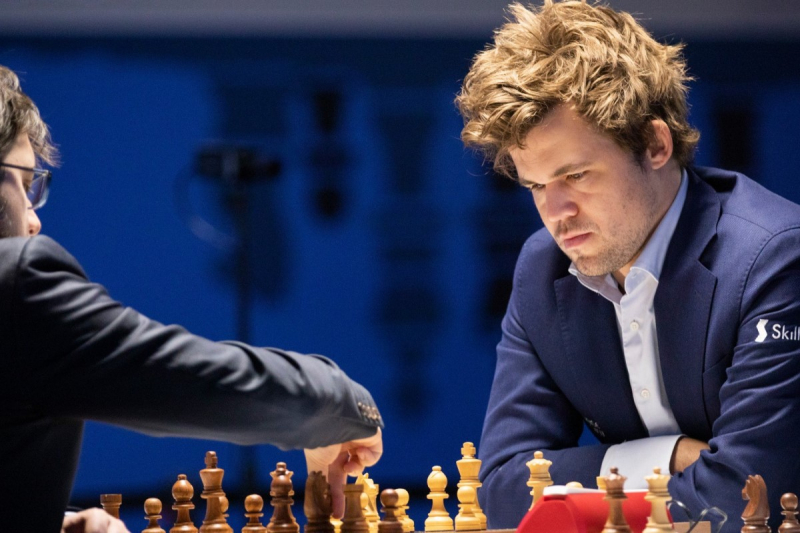
Source: ChessBase -
This famous champion, also nicknamed "Austrian Morphy," was a significant contribution to contemporary chess. In 1873, he established a new type of positional play - which was first seen as insignificant since it was distinct from an all-out offensive method. However, a few years later, his innovative thinking and strategies started to become more and more accepted. His ideas and publications on the game were highly influential at the time, and he is now often referred to as "the father of positional play."
Even though some theories of Wilhelm Steinitz may seem weird to contemporary ears, they provided the basis for all the spatial themes we are familiar with today. Among others, Tarrasch and Lasker acknowledged Steinitz as their "teacher."
Steinitz beat Adolf Andersson, the greatest active player at the time, in 1866. Between 1873 and 1882, Steinitz played just one match, against Blackburne, which he won with a perfect 7-0 score. In 1882, he made his return; and then, in 1886, he defeated his longtime rival Zuckertort for the "world championship." Wilhelm Steinitz prolonged his rule for the following eight years, beating Gunsberg and Chigorin. His domination lasted until 1894, when he was defeated by Emanuel Lasker.
Unfortunately, the great chess contributor died of poverty in 1900. But what he brought about to the chess game will never be forgotten.
Born: 1836
Nationality: Austrian - American
World Champion: 1886 - 1894
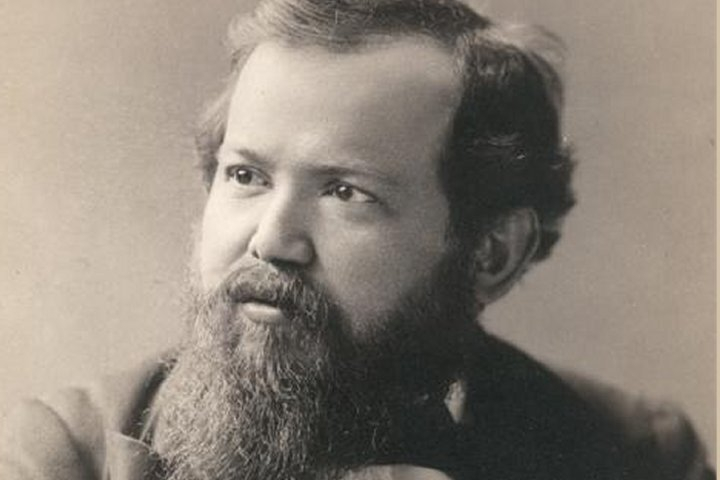
Source: Mind Mentorz 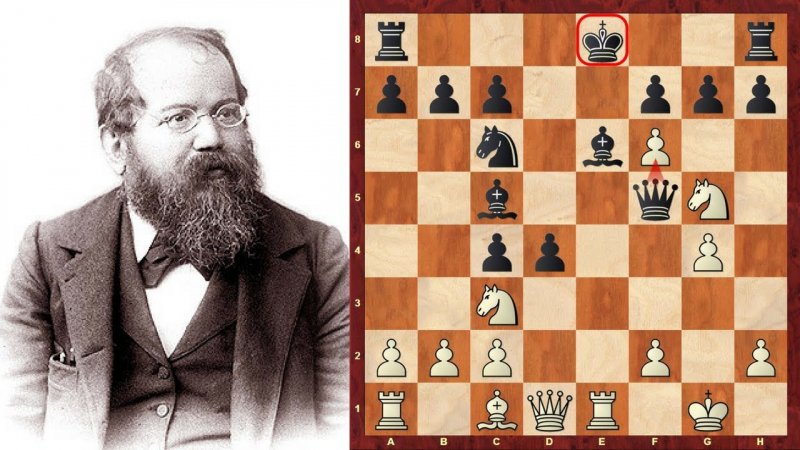
Source: Youtube -
Ranking number five on our list is none other than Jose Raul Capablanca, one of the greatest chess grandmasters in history. Capablanca was the uncontested blitz chess champion! He has impressed the whole world with his distinctive strategy and long-term reign over almost every tournament during his time.
At age 4, Jose Raul Capablanca started his chess career. He beat the Cuban champion at the mere age of 13. And then, at the age of 18, he easily won over Frank Marshall - the US Champion - at 15-8. In 1921, Jose finally won the International Chess Tournament and ended Lasker's years-long reign. And throughout the six consecutive years after that, the new world chess grandmaster successfully defended his title. He played continuously against 103 opponents in 1922, winning 101 games and receiving only one tie!
In 1927, Jose was unfortunately dethroned by Alexander Alekhine, bringing an end to his rule. Later, he participated in further chess tournaments, but he never again achieved his peak and retired in 1931.
It is well-known that during his golden era, Capablanca had exceptional strategic, tactical, and endgame talents. Just as if he were a machine, he was also renowned for his lightning-fast playing pace and unrivaled ability to quickly analyze a situation and choose the optimal move. His endgame strategy was so faultless that he earned the famous title "Chess Machine."
Born: 1888
Nationality: Cuban
World Champion: 1921 - 1927
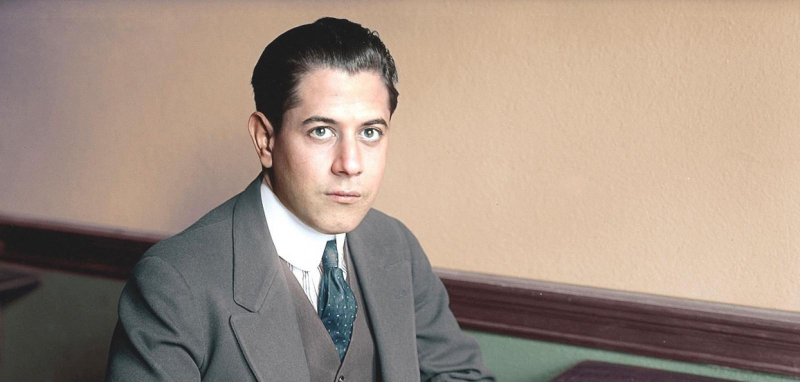
Source: CubaPLUS Magazine 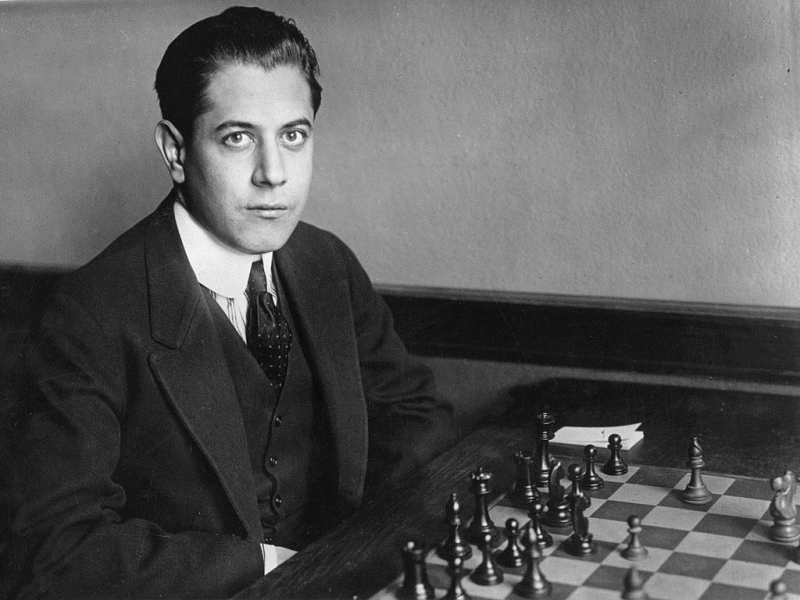
Source: Wikipedia -
At barely 14, Robert "Bobby" James Fischer started to play chess. Throughout his golden career, he won eight US Chess Championships, became the youngest Master (at age 15), and was the youngest contender for the World Chess Championship.
Fischer won twenty straight matches in the "1970 Interzonal" in 1970. And then, in a historic encounter in 1972, he beat Boris Spassky to receive the title of the World Chess Master. Unfortunately, in 1974, he failed to defend his championship because he and FIDE were unable to settle on match conditions.
Later on, he sadly became involved in several issues and scandals; yet, he still received lots of love from people around the world, as it's rare for the world to have such a talented chess player! His method of playing has made him a household name among chess masters of all skill levels.
Some of you may ask, what is Bobby Fischer's best game? Well, it's impossible to select just one out of his many outstanding chess games, though we cannot deny that the sixth game of his memorable 1972 World Championship Match versus Boris Spassky in Reykjavík was unquestionably one of the most significant games of his chess career.
Given that this was the Cold War fought over 64 squares, media attention was very high. Bobby Fischer ended the chess dominance of the Soviet Academy single-handedly, elevating his own fame to the next level.
Born: 1943
Nationality: American
World Champion: 1972 - 1975
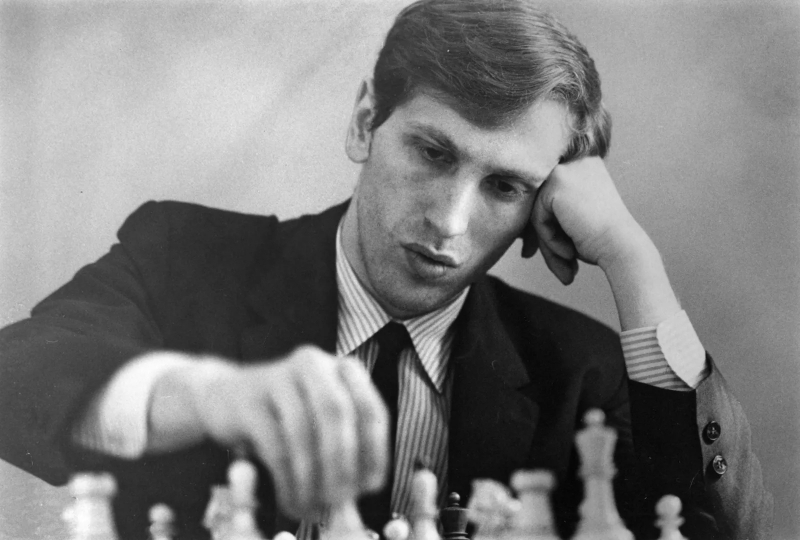
Source: Encyclopedia 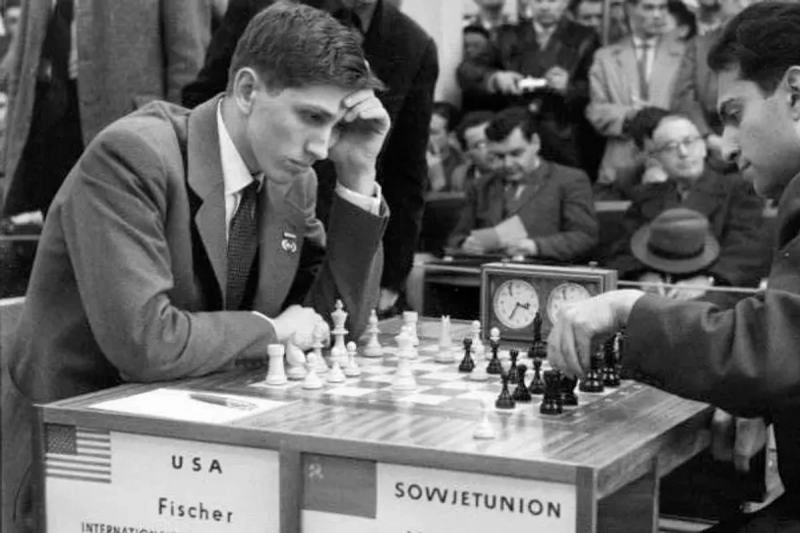
Source: Salon.com












